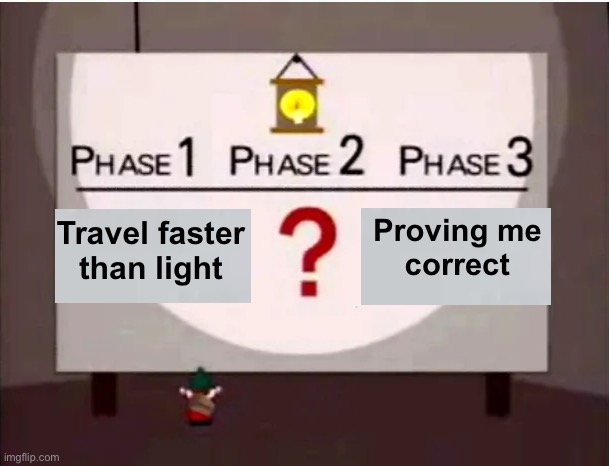Tinkerpeach
Member
So none of us should bother to analyze or question the received knowledge?
I'm not dissing Einstein (although that is what you will take away from this), but rather that Einstein is not God. While he was very good with his specialty of Relativity he was not the greatest mathematician, he failed to grasp Quantum and he wasn't perfection.
If someone disagrees with Einstein on philosophy it seem perfectly reasonable.
Einstein said it’s impossible to go faster than the speed of light yet things do, we’ve proven it


